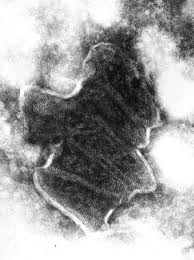Vesicular stomatitis virus (VSV) is a virus in the family as the well-known rabies virus. VSV can affect horses, cattle, and pigs and causes clinical symptoms very similar to foot-in-mouth disease. The disease can spread rapidly through close contact or through biting insects and as such is prone to epidemics.
Transmission:
Vesicular stomatitis is seen sporadically in the USA, usually May through October. The virus can be transmitted through direct contact with infected animals with clinical disease, indirect contact with an infected surface, or by blood-feeding insects. Exposure to insects that carry the virus is often associated with nearby moving water sources such as creeks or rivers or irrigation of pastures.
Symptoms:
Ulcers are the most prominent sign of VSV infection. The disease usually resolves within two weeks and a full recovery is common. Other symptoms may include:
- Ulcers in the mouth, hooves, muzzle, and ears
- Anorexia
- Lethargy
- Pyrexia and fever


